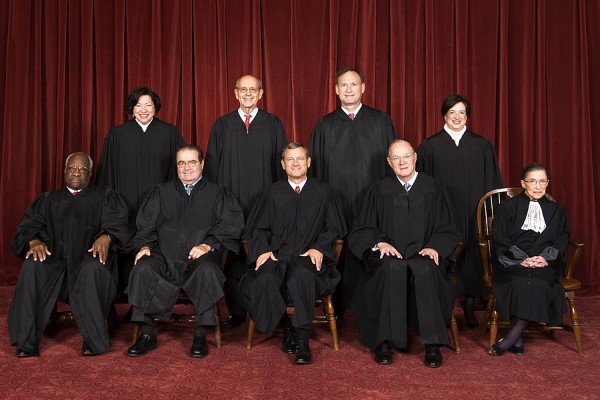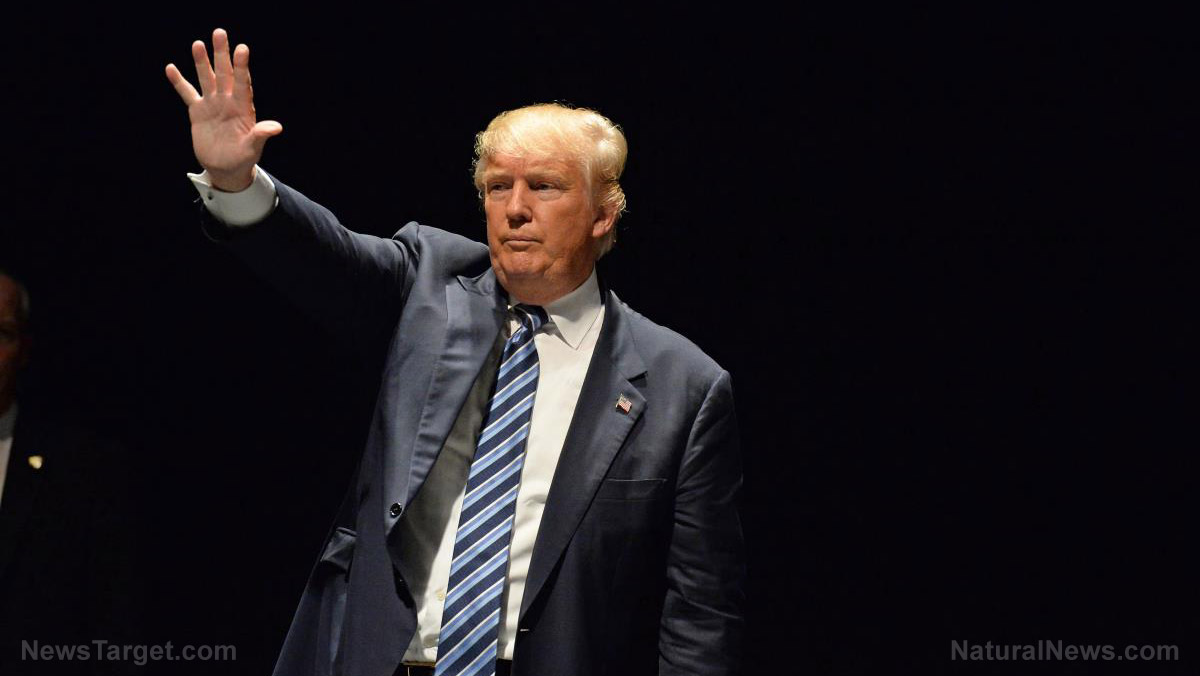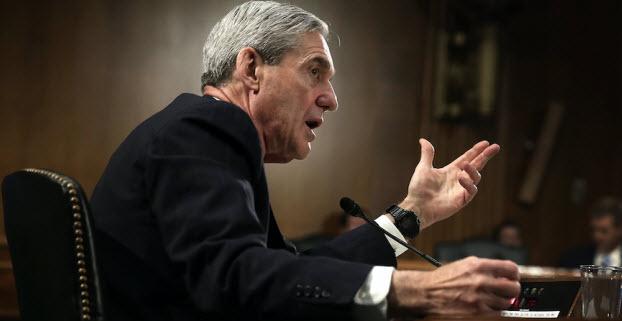Trump will not appease far-Left Democrats with his Supreme Court picks
01/26/2017 / By JD Heyes

One of the rallying cries to supporters of both Hillary Clinton and Donald J. Trump during the presidential campaign last fall was that whoever wins the White House will get to pick a generation’s worth of Supreme Court justices, thus putting their ideological stamp on the Judicial Branch for decades to come.
Trump was victorious, of course, and now that he’s in office, he’s preparing to fulfill that presidential duty. By next week, reports noted, he will nominate one of several potential conservative justices he identified last year while on the campaign trail to a spot on the nation’s highest court that was left vacant by the sudden death of constitutional originalist, Justice Antonin Scalia.
Democrats, bowing to their angry Left constituents, have vowed to block any nominee they don’t consider “mainstream” enough – that is, any nominee they feel is too much of a constitutionalist. After all, if they are nothing else, Democrats are loathe to be penned in by the nation’s founding document. (RELATED: Keep informed on all of the administration’s political battles at WhiteHouse.news)
But, as reported by the Washington Examiner, the president does not appear to be in any mood to appease Democrats by nominating potential justices they approve of.
“He’s been very clear about his priorities. He’s put out a list during the campaign of individuals he would consider,” White House press secretary Sean Spicer told reporters, making reference to Trump’s list of 21 conservative judges and state Supreme Court justices he pledged to consider as potential Supreme Court nominees.
“But I think it’s pretty mainstream to support the Constitution,” Spicer noted further. “Pretty mainstream to follow the law and not to create laws from the bench.
“I think a majority of Americans would agree, and I think when it comes to the candidates that he’s put up for his Cabinet – look at the quality and caliber of these people. That’s the quality and the caliber he’s going to continue to look for,” he added.
In interviews, Senate Minority Leader Charles Schumer, D-N.Y., said that Democrats would likely block nominees they did not consider “mainstream” enough. “If the nominee is not bipartisan and mainstream, we absolutely would keep the seat open,” he pledged.
Trump met with Senate leadership late Tuesday afternoon to talk about the nomination process, the Washington Examiner reported.
Under current Senate rules, Supreme Court nominees need the consent of 60 members in order to win confirmation. Currently there are 52 Republicans in the Senate compared to 48 Democrats; that means that in order for Trump’s nominees to win confirmation, at least eight Democrats would have to join every Republican in granting approval.
Frankly, that’s not likely to happen. So that means that, under current Senate rules, Trump’s nominees, if they come from the list of 21, won’t be confirmed to the Supreme Court (even though Republicans ensured that President Obama’s left-wing nominees, Sonia Sotomayor and Elena Kagan, were confirmed).
But what if the rules were changed?
The Constitution says nothing about a 60-vote majority:
The President … shall nominate, and by and with the Advice and Consent of the Senate, shall appoint Ambassadors, other public Ministers and Consuls, Judges of the supreme Court, and all other Officers of the United States, whose Appointments are not herein otherwise provided for, and which shall be established by Law … (Article II, Section 2, Clause 2)
In other words, an implied simple majority of senators present is all that is needed to confirm justices and Cabinet members, versus a constitutionally required supermajority of two-thirds of senators for a treaty. Republican leaders in the Senate, then, would have to ditch the filibuster rule in order for Trump’s Supreme Court picks to be confirmed by simple majority. (RELATED: Stay abreast of any and all threats to the Constitution at Liberty.news)
There is recent precedent for this: In November 2013, frustrated by Republican efforts to block many of Obama’s picks to the federal judiciary, then-Senate Majority Leader Harry Reid, D-Nev., invoked the “nuclear option” and eliminated the filibuster rule for most presidential nominees.
Just not for Supreme Court nominees.
That could change. Over the weekend, current Senate Majority Leader Mitch McConnell, R-Ky., signaled in an interview on Fox News Sunday that Trump’s Supreme Court pick was going to be approved one way or another.
“Well, let me just say, I’m confident we’ll get a Supreme Court nominee confirmed,” he said, without directly saying he would invoke the nuclear option.
J.D. Heyes is a senior writer for Natural News and News Target, as well as editor of The National Sentinel.
Sources:
Tagged Under: filibuster rule, Nominees, President Donald J. Trump, Senate, Supreme Court




















